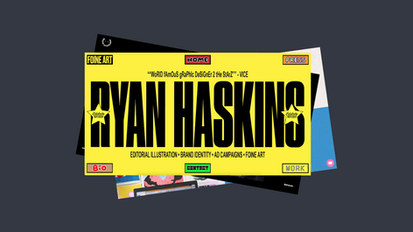Quick Web Design and Web Development Guide
How to Master Web Design and Web Development
Web Design and Web Development
Creating a membership site can be a great way to generate recurring revenue and build a community around your content or offerings. To create a successful membership site, you need a reliable website builder that is specifically designed for membership sites. In this article, we will explore some of the best website builders for membership sites and discuss their features and benefits.

Web Design and Web Development Challenges
Web Design and Web Development
1. WordPress:
WordPress is one of the most popular website building platforms in the world, powering over 30% of all websites on the internet. It’s known for its flexibility and ease of use, making it a great choice for both beginners and experienced developers. With thousands of themes and plugins available, you can customize your site to fit your needs perfectly. WordPress also offers a user-friendly interface that makes it easy to create and manage content.
2. Wix:
Wix is another popular website building platform that offers a drag-and-drop editor, making it easy for anyone to create a professional-looking site. With hundreds of templates to choose from, you can quickly design a site that fits your brand aesthetic. Wix also offers a variety of features, such as e-commerce tools, marketing integrations, and analytics, making it a comprehensive solution for building your online presence.
3. Squarespace:
Squarespace is a website building platform known for its stunning design templates and powerful features. Whether you’re looking to create a portfolio, blog, or e-commerce store, Squarespace has you covered. The platform offers a range of customization options, such as fonts, colors, and layouts, allowing you to create a unique site that reflects your brand. Squarespace also offers built-in SEO tools and analytics, making it easy to optimize your site for search engines.
4. Shopify:
If you’re looking to build an online store, Shopify is the go-to platform for e-commerce websites. With easy-to-use tools for managing products, inventory, and orders, Shopify makes it simple to create a successful online store. The platform also offers a variety of themes and customization options, allowing you to create a unique shopping experience for your customers. Additionally, Shopify offers integrations with popular payment gateways and shipping providers, making it a comprehensive solution for selling products online.
5. Weebly:
Weebly is a user-friendly website building platform that offers a drag-and-drop editor and a variety of pre-designed layout options. Whether you’re looking to create a blog, portfolio, or online store, Weebly has templates and features to support your needs. The platform also offers SEO tools, analytics, and marketing integrations, making it a great choice for building a successful online presence.
1. Wix
Wix is a popular website builder that offers a user-friendly interface and a wide range of design templates to choose from. With Wix, small businesses can easily create a professional-looking website without any coding skills. The drag-and-drop editor makes it easy to customize your site to fit your brand and business needs. In addition, Wix offers a free plan that includes Wix branding and a subdomain, making it a great option for small businesses on a tight budget.
2. WordPress
WordPress is one of the most popular content management systems (CMS) in the world, powering millions of websites. While WordPress is known for its flexibility and customization options, it can be a bit intimidating for beginners. However, WordPress.com offers a free plan that allows users to create a basic website with limited customization options. For small businesses looking for more control and flexibility, WordPress.org is a better option, but it requires a hosting plan.
3. Weebly
Weebly is another user-friendly website builder that is perfect for small businesses. With Weebly, users can choose from a wide range of design templates and easily customize their website with drag-and-drop tools. Weebly also offers e-commerce features, making it a great option for small businesses looking to sell products online. While Weebly’s free plan includes Weebly branding and a subdomain, users can upgrade to a paid plan for more features and customization options.
4. Squarespace
Squarespace is a sleek and modern website builder that is perfect for small businesses looking to create a visually stunning website. With Squarespace, users can choose from a range of design templates and customize their site with a drag-and-drop editor. While Squarespace does not offer a free plan, they do offer a 14-day free trial, allowing users to test out the platform before committing to a paid plan.
5. Shopify
Shopify is a popular e-commerce platform that allows small businesses to create an online store. While Shopify is primarily geared towards e-commerce, they also offer a website builder that allows users to create a basic website for their business. With Shopify, users can choose from a range of design templates and customize their site with drag-and-drop tools. While Shopify does not offer a free plan, they do offer a 14-day free trial, allowing users to test out the platform before committing to a paid plan.

Web Design and Web Development in 3 Steps
Web Design and Web Development
In conclusion, a website portfolio case study device generator is a valuable tool for anyone looking to create a professional and effective online portfolio. Whether you’re a freelancer, artist, designer, or any other creative professional, a website portfolio can help you showcase your work and attract new opportunities. By using a website portfolio case study device generator, you can save time, create a polished looking portfolio, and reach a wider audience. So why wait? Start creating your website portfolio today and take your online presence to the next level.


